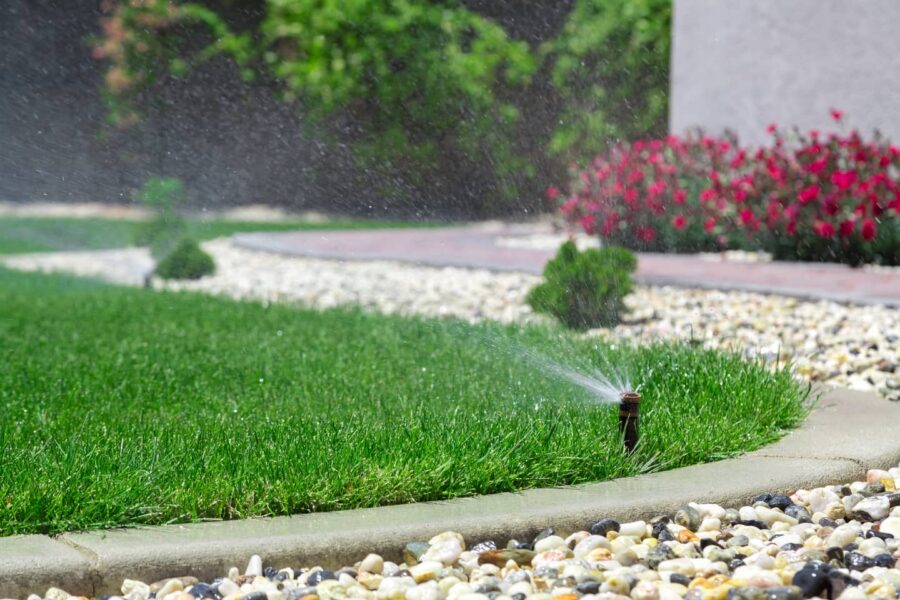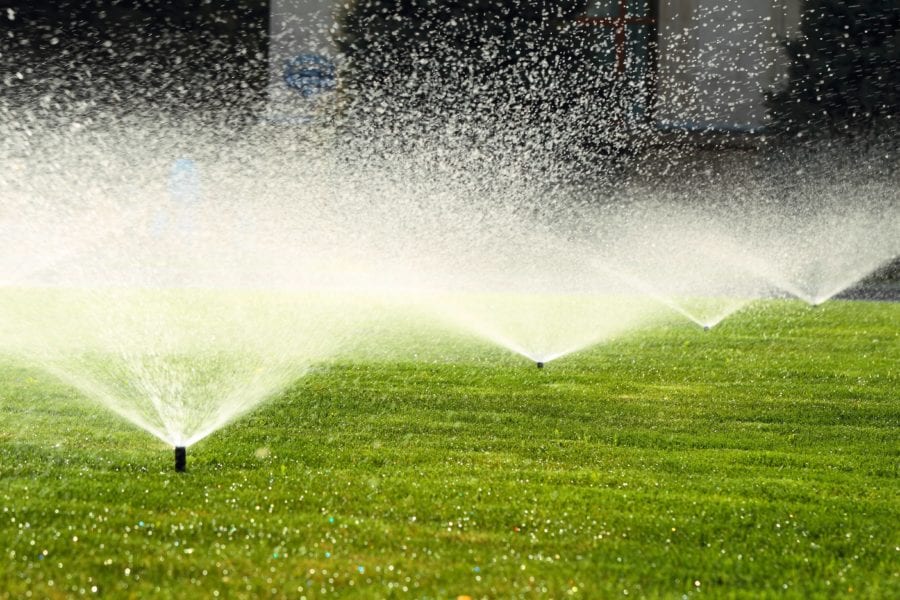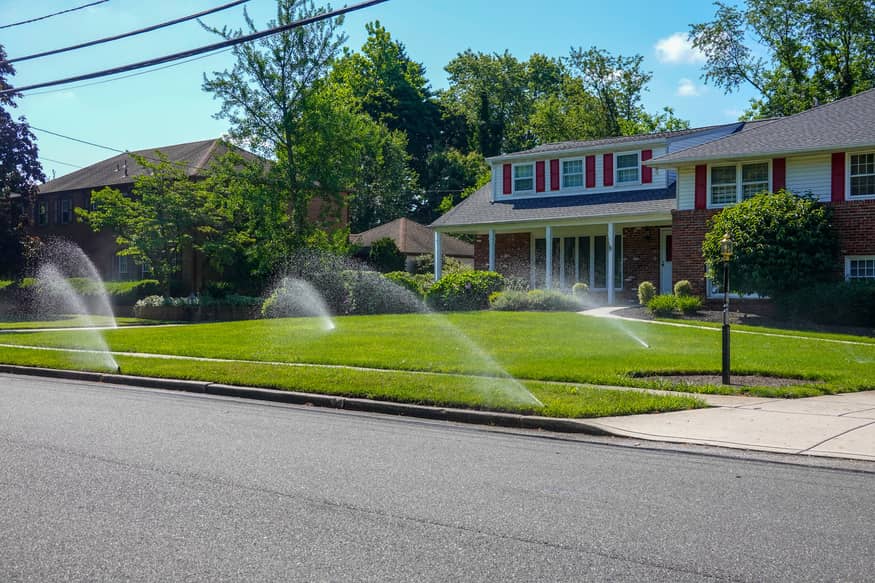
You have spent the day planting flowers and making sure everything is in the right place. The next step is watering the soil. Whether this is done with sprinklers attached to the hose or a sprinkler system is key to maintaining a healthy garden and lawn. However, don’t overwater. How is over-irrigation damaging to the soil? It can keep the plants and flowers from growing and also cause the soil to have low oxygen.
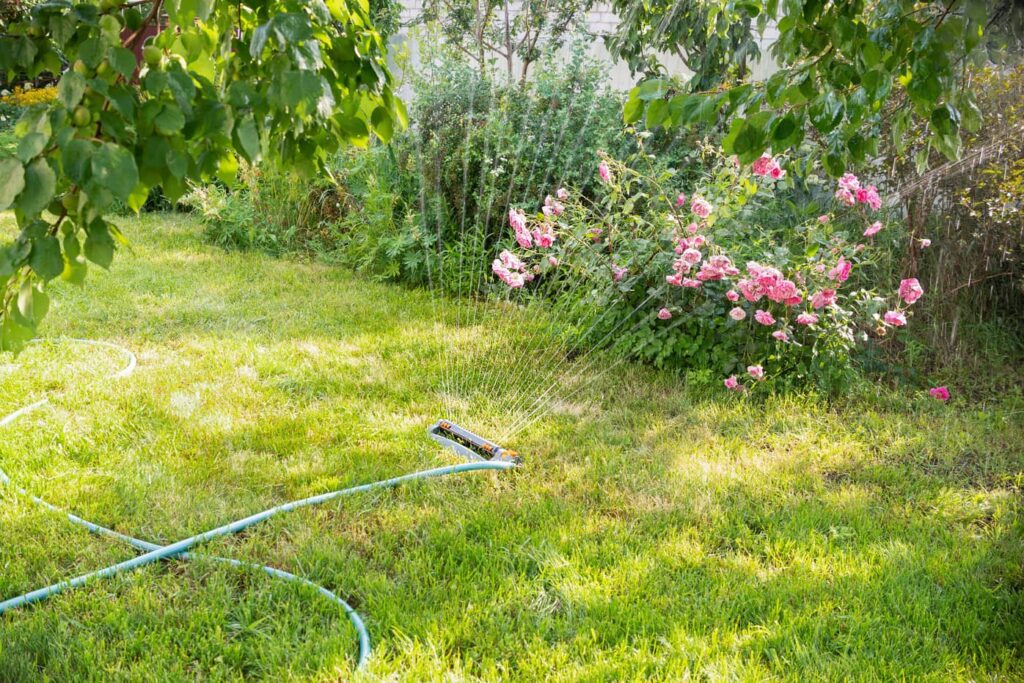
What Is Irrigation
The water that is used to grow crops is called irrigation. Many homes have irrigation systems that range from simple sprinklers, a hose, or watering with a can to complex systems. Another type of irrigation is rainfall. The best type of irrigation system is what works best for you and gets the job done. However, it must be balanced so you don’t have too much or too little. If you have too much water, it will keep your plants from growing, while on the other hand, too little and the plants will die. It is hard to find the balance, but it can be done.
Why Over Irrigation Damages the Soil
Farmers need to be careful when irrigating their crops and tend to increase the amount of water to prepare for a drought. This gives them the confidence that they are prepared in the event a drought happens.
However, overwatering will make the active root zone have a higher moisture level over the amount of water it can hold. This is called field capacity. When the water in a crop is over its moisture limit, it starts to drain the water out. It comes out through the root zone and the crop loses water and nitrogen.
Over-irrigation can lead to an increase in salinity in the soil. Most crops don’t like salt and this can also affect the growth of the crop. Additionally, irrigation damaging the soil happens if it doesn’t have proper drainage. If there is too much moisture, this excess water can cause low-oxygen levels or saturated conditions. Also, the number of nutrients will slow down if there is too much water. Lastly, if the excess water lasts for over two days during the growing season, the moisture can destroy some of the roots.
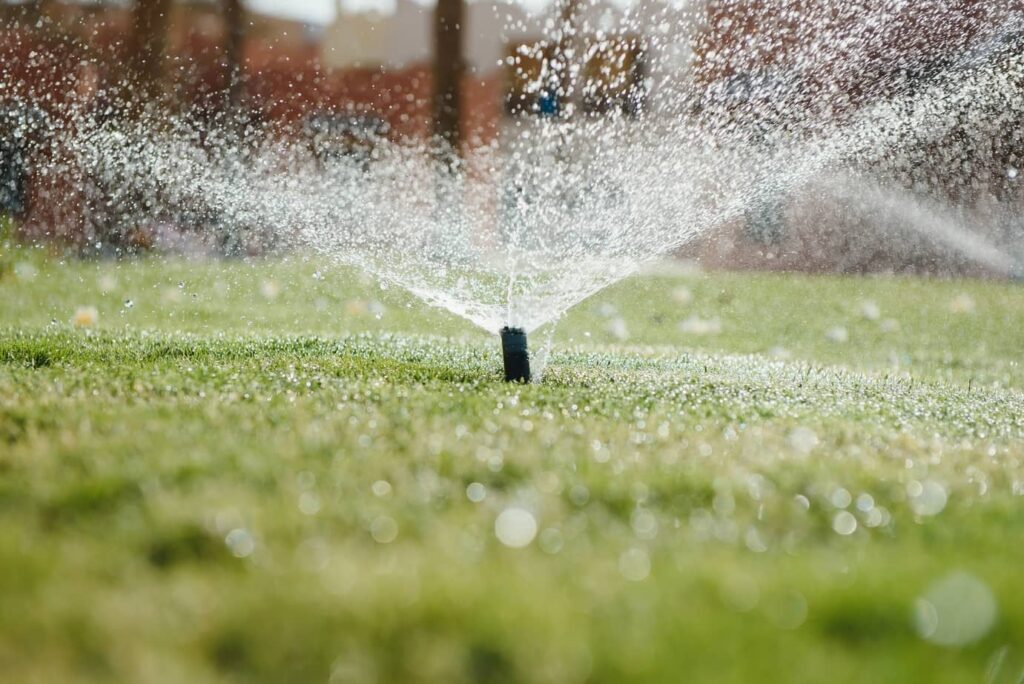
Effects From Over-Irrigation
In addition to the increase in salinity and the field capacity being above where it should be, other things can happen when over-irrigation is damaging the soil.
- Loss of water
- Diseases such as root rot can shorten the lifespan of plants and reduce the toughness of the tree
- Faster weed growth
- The lower amount of plants harvested or that grow to full size
- Higher amount to pump water out of the garden or yard
How Do I Prevent Over Irrigation
There are a few ways that this can be prevented.
- Being smart in irrigation – planning ahead of time and figuring out how much your plants need is important, as over-irrigation is damaging the soil. As mentioned above, planning for a drought is important. It is difficult to fix the damage from the water log and your yard may look unkempt for a long time as it will take a while for the plants to grow again.
- Automatic Sprinklers – this type of system is a good idea as they save water, time, and money. This is because they water the plants based on the timers you have set and when the ground needs it.
- Good Drainage System – if you don’t have a good drainage system, it can rid your soil of good nutrients and aeration. Also, if you are finding that you have water in your basement, this can be due to a poor draining system and you may need to have a french drain installed in the basement.
Here is a great video about how to properly water your lawn:
Other Recommended Maintenance
Now that you know about over-irrigation, there are some areas to maintain or pay attention to. One of those is landscape fabric. A lot of homeowners use landscape fabric so they can keep the weeds from growing. However, it restricts the water that gets to the plants so there are other alternatives to take a look at using instead.
Another area to take a look at is your garden. Some people wonder about what type of rock to put in the yard. The good news is that rock landscaping does not attract bugs as there is no food source and it doesn’t decompose. River rock is also a good idea as it absorbs the water and helps with runoff.
Lastly, there are four ways to maintain your irrigation system. In the spring months, turn on your system and make sure all the zones are working. This is after the cold winter and before the warm temperatures in the summer set in. Next, check the grass-brown areas or swamps. Using an air compressor, you can do a blowout in the winter months. Finally, in the summer, run the sprinkler once a week, depending on where you live.
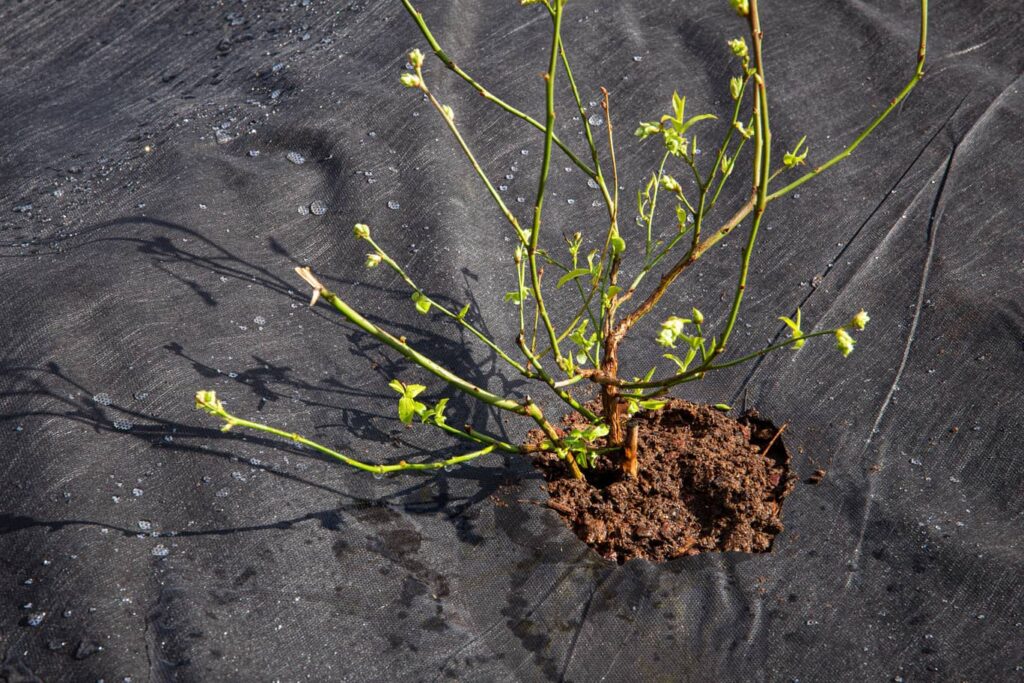
When Do I Call A Professional
If you are having issues with irrigation in your yard or garden, call your local home inspection company that can help figure out the problem. Not every home inspection company offers this service so you will want to find out who does or get a recommendation. Also, if you are having drainage issues in the yard, a home inspection company can help with recommendations. Lastly, if you aren’t sure how to set the program for the sprinkler system, or how to irrigate properly, it may be time to call a professional.
Conclusion
Making sure that you are not over-irrigating the soil is important. Take the time to figure out the amount of water the soil needs and planning is a good idea. You never know when a drought will hit. Be smart, use sprinklers that are on-timers, and perform regular maintenance so you can make sure your yard and garden are the best they can be. Call on Boggs Inspection Services to get an irrigation inspection completed in Lacey, WA, and surrounding areas.

